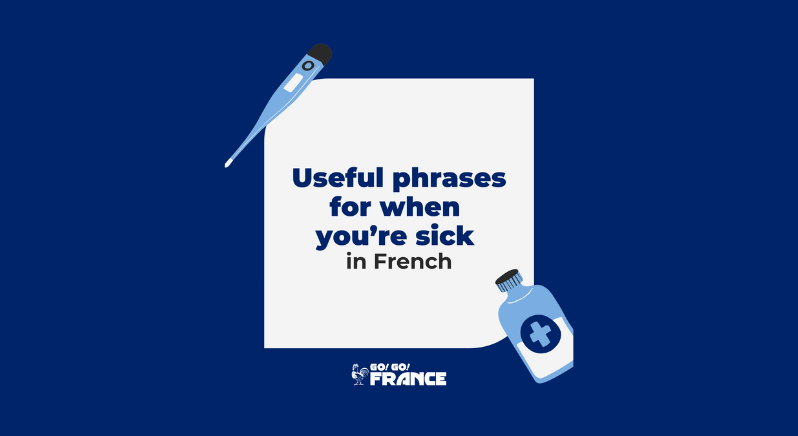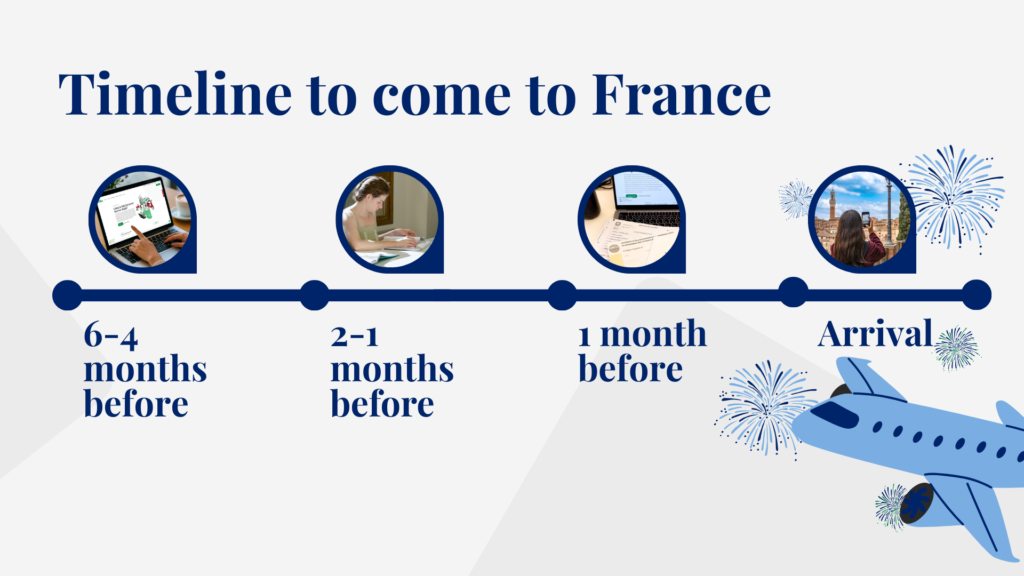Knowing essential medical terms in French will help you communicate effectively with your doctor or at the pharmacy.
Being able to describe your symptoms confidently is crucial, which is why we’ve put together this guide to essential medical terms in French.
Which doctor should I see for my symptoms in France?
For general health concerns, start with a médecin généraliste (general practitioner).
For specialised care, here are common specialists:
| French | English |
|---|---|
| Dentiste | Dentist |
| Dermatologue | Dermatologist |
| Ophtalmologue | Ophthalmologist |
| Cardiologue | Cardiologist |
| Gastro-entérologue | Gastroenterologist |
| Gynécologue | Gynecologist |
| Psychiatre | Psychiatrist |
How can I describe my symptoms in French?
Before examining you, doctors in France will typically ask about your condition: What is happening? How do you feel? Where does it hurt?
Being able to describe your symptoms clearly is important. To do so, you can use the following simple terms to describe your symptoms:
| French | English | Example Sentence |
|---|---|---|
| Fièvre | Fever | J’ai de la fièvre depuis hier. I have had a fever since yesterday. |
| Toux | Cough | J’ai une toux persistante. I have a persistent cough. |
| Fatigue | Fatigue | Je me sens très fatigué(e). I feel very tired. |
| Nausée | Nausea | J’ai des nausées depuis ce matin. I’ve been feeling nauseous since this morning. |
| Vertige | Dizziness | J’ai des vertiges quand je me lève. I feel dizzy when I stand up. |
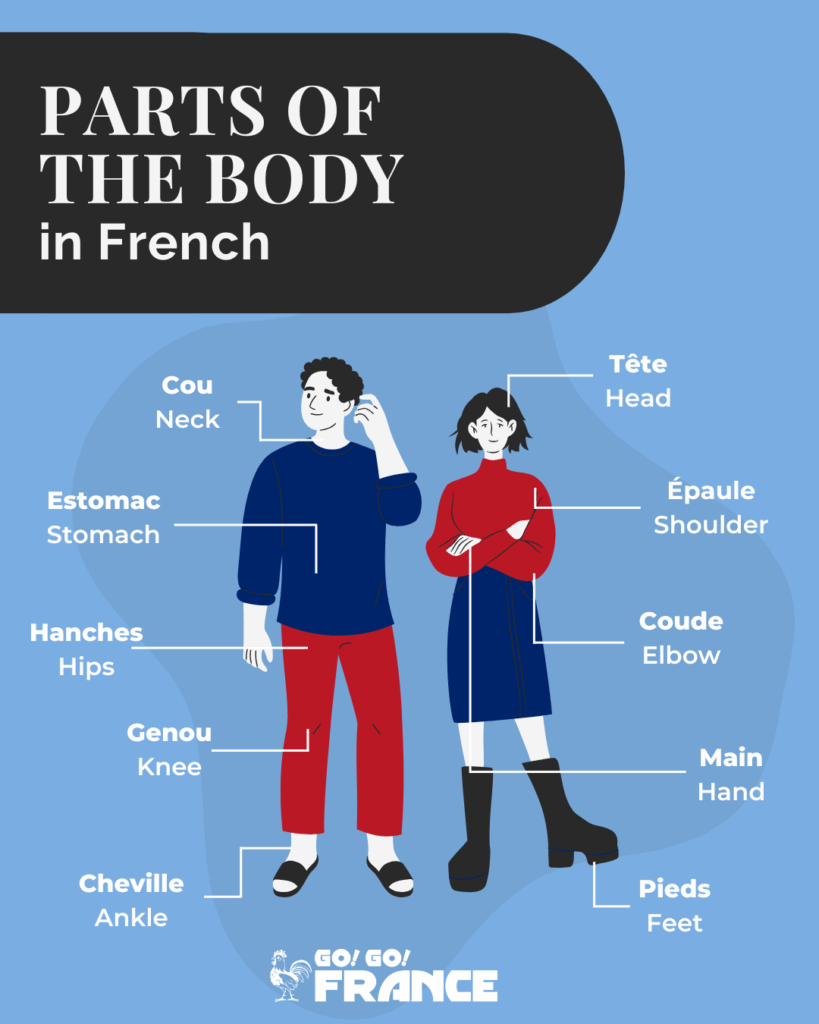
Or, you can simply describe how you feel and where it hurts by saying: “J’ai mal à [body part]”.
| French | English | Example |
|---|---|---|
| La tête | Head | J’ai mal à la tête depuis ce matin. I have had a headache since this morning. |
| L’œuil / Les yeux | Eye | J’ai mal à l’œil gauche. My left eye hurts. |
| L’oreille | Ear | J’ai mal à l’oreille droite. My right ear hurts. |
| La bouche | Mouth | J’ai mal à la bouche quand je mange. My mouth hurts when I eat. |
| Les dents | Tooth | J’ai mal à une dent depuis hier. I have a toothache since yesterday. |
| La gorge | Throat | J’ai mal à la gorge et je tousse beaucoup. My throat hurts and I cough a lot. |
| L’estomac | Stomach | J’ai mal à l’estomac après le repas. My stomach hurts after the meal. |
| Le dos | Back | J’ai mal au dos depuis que j’ai soulevé cette boîte. My back hurts since I lifted that box. |
| Les bras | Arm | J’ai mal au bras gauche. My left arm hurts. |
| Les jambes | Leg | J’ai mal à la jambe droite quand je marche. My right leg hurts when I walk. |
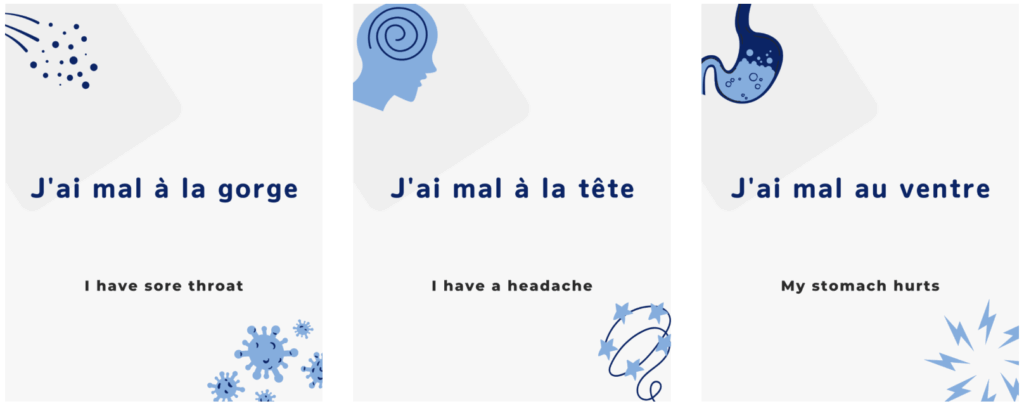
What to ask for at the pharmacy in France?
For minor problems, you can get over-the-counter medicine at a pharmacy in France.
Here are essential phrases and vocabulary to get the right medicine for your situation:
| French | English |
|---|---|
| Avez-vous quelque chose pour la douleur ? | Do you have something for pain? |
| Je cherche quelque chose pour une toux. | I’m looking for something for a cough. |
| Puis-je avoir des pastilles pour la gorge ? | Can I have some throat lozenges? |
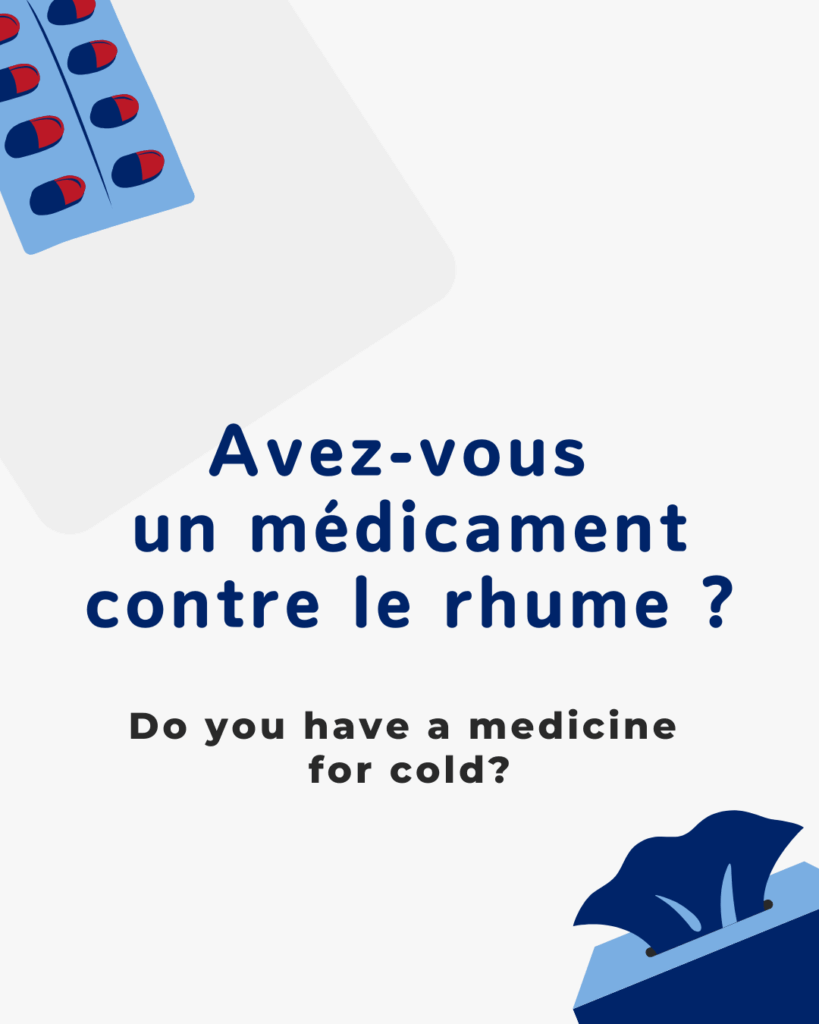
To find a pharmacy close to you: https://www.google.com/maps/search/pharmacy+near+me/
And for more practical tips, insights, and guides to everyday life as an international student in France, explore our Go! Go! France blog!
